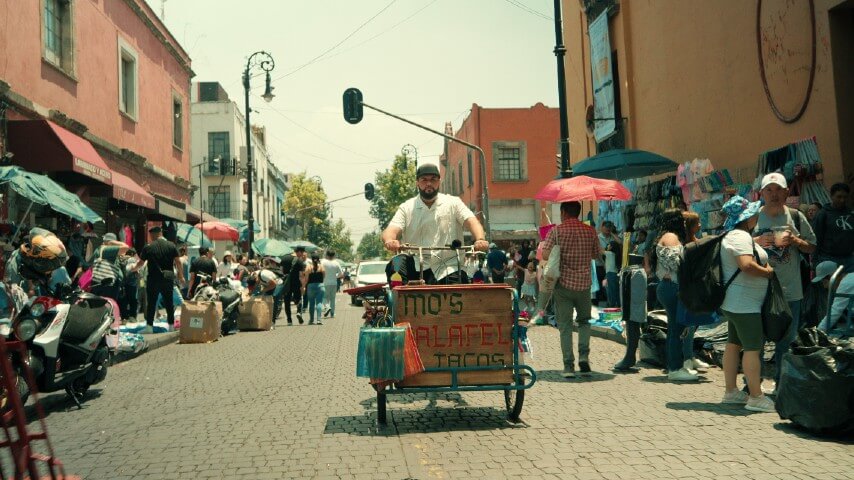Mo artfully tackles the migrant crisis in its fantastic final season
Netflix’s timely, heartfelt dramedy goes global.
Photo: Netflix
Mo is stuck in Mexico. In 2022, the first season of Mo—the eponymous dramedy loosely based on comedian Mohammed “Mo” Amer’s life—ended with Mo (Mohammed Najjar, played by Amer) accidentally chasing olive-tree thieves all the way across the border from Houston. But Mo doesn’t have a passport. He’s a Palestinian refugee, and he has no way home.
That’s where we find him at the beginning of season two, six months after the events of the first batch’s finale, languishing in limbo. But Mo has an asylum hearing coming up in Houston—one he’s been waiting 22 years for—and he needs to get back fast. So he turns to smugglers, coyotes. And, through the show’s wry wit, we get a clear-eyed view of the migrant crisis.
Mo (both the character and the real-life comedian) is already an asylum seeker; he was born in Kuwait to Palestinian parents, and they fled to the U.S. during the first Gulf War. Now the character’s sticky immigration situation is compounded. Who better, perhaps, to peel back the film on the realities of a squalid detention center? Who understands being forced to flee the only home one has ever known better than a Palestinian?
If the twin crises of the overloaded immigration system and the constant conflict in Palestine will shape 2025, then Mo’s second season might help us meet the moment—or at least understand it. “Well, it’s not really a conflict, right?” Mo asks a U.S. ambassador to Mexico. “A conflict implies there’s two equal sides.”
Mo is, of course, caught while crossing the border. (He’s a regular Charlie Brown of the immigration system, with the proverbial football yanked away from him time and time again.) He gets sent, along with the others, to a Texas border immigration facility, a mouthful to describe a cramped metal warehouse. This is not, to clarify, an ICE facility. But it is dehumanizing to the extreme, full of dirty drinking water, antagonistic border agents, and godawful smells.
We see a snippet of what it took for the migrants to get here: “We waited three weeks for the ferry to take us close enough to the border to go by foot,” one man tells a group of listeners. “And then 10 day caminamos through the jungle with the mudslides, the snakes. But the worst was the cartel. Three days we hide from them, drinking only the juice from the can of a sausage, to make it last. Until finally we crossed into Panama.” “Fuck,” Mo says under his breath. “You did all that to get to Panama?” “Yes,” the man replies. “And you, what is your story?” “Oh,” Mo responds, sheepish. “I took a bus from Mexico City.”
And here lies the magic of Mo: Amer—and co-creator Ramy Youssef and writers Chris Gabo, Harris Danow, Azhar Usman, Anna Salinas, Jacqui Rivera, and Luis Sivoli—excel at the one-two punch of exposing a stark reality (one that’s important to witness) followed by masterful comic relief, delivered with suave embodiment by Amer. (It’s the polar opposite of Mo’s luchador alter ego, El Oso Palestino, who cannot land a punch to save his life.)








































